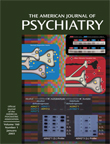As the authors note in their preface, the designation of this book as The Shorter Oxford Textbook is used to distinguish it from the longer and more comprehensive two-volume New Oxford Textbook of Psychiatry. The Shorter Oxford Textbook of Psychiatry is meant to be more concise as well as to provide a basic text for trainees and advanced students of medicine and clinical psychology, general practitioners, and others whose work requires knowledge of psychiatry. In addition to revising the text and references of previous editions, new chapters have been added on evidence-based psychiatry and on ethics and the law. Earlier editions benefited from the contributions of Dr. Dennis Gath, who has since retired. The authors have brought in distinguished advisors to help revise several chapters.
I have fond memories of the first edition of this shorter textbook, which was published during my training years. My chair, George Winokur, thought that to be well-rounded, one ought to read from a variety of texts. I found the Oxford shorter textbook refreshing, particularly in contrast to what was available from American psychiatrists. This occurred at a time when there was a great shift taking place in the theoretical paradigm of American psychiatry: more emphasis was being placed on diagnosis, spurred by the then recent publication of DSM-III, and on biopsychiatry. I found the first edition concise yet comprehensive, terse, and matter of fact. Material was presented with an air of skepticism that I found missing in homegrown texts. These qualities have continued to the present edition.
The chapters develop logically, starting with “Signs and Symptoms of Mental Disorder,” “Assessment,” “Ethics and Civil Law,” “Classification in Psychiatry,” “Aetiology,” and “Evidence-Based Approach to Psychiatry.” The explanation of the different symptoms is superb; terms that should be understood by contemporary residents in training (but aren’t) are fully explained, such as the distinction between primary and secondary delusions. Even the terms “pseudohallucination” and “false memory syndrome” are lucidly explained. The chapter on assessment provides detailed instructions on taking a psychiatric history and conducting a mental status examination. Unfortunately, neuropsychological assessments are given short shrift. The use and format of a psychiatric formulation is provided, as are problem lists and descriptions of standardized assessments such as the Present State Examination.
Whereas American textbooks slavishly follow the DSM-IV classification scheme, in this book both DSM-IV and ICD-10 classifications are discussed. American students of psychiatry are often woefully ignorant of classification schemes used outside the United States. The discussions of individual disorders begin with the chapter on “Personality and Personality Disorder.” Several personality types are discussed, as are origins of personality assessment and the history of abnormal personality over time. ICD-10 and DSM-IV concepts are compared; for example, unstable personality disorder in the former, and borderline personality disorder in the latter. Chapter 8, “Reactions to Stressful Experiences,” deals with disorders that DSM-IV would label posttraumatic stress disorder, adjustment disorders, and acute stress disorder. The grouping makes sense because these are all disorders in which some sort of stressful situation has led (or contributed) to the development of psychiatric symptoms.
There are useful chapters on anxiety and obsessive-compulsive disorders, mood disorders, schizophrenia and schizophrenia-like disorders, neuropsychiatry, sleep disorders, eating disorders, alcohol and drug use disorders, and sexual disorders. There is a chapter called “Psychiatry and Medicine” that deals with psychosomatic disorders. Separate chapters are provided on pharmacological treatments and psychological treatments. Extensive chapters are presented on disorders that arise in childhood and adolescence and the treatments required. Forensic psychiatry is covered, unique for volumes of this sort, beginning with discussions of criminality and its causes. (Pathological gambling is included in this chapter, which pathological gamblers may find upsetting!)
Other useful features of this book include an extensive list of up-to-date references, recommended readings, useful tables and graphs, and interesting sidebars. For example, one chapter includes sidebars on the psychodynamic approach to depression and Freud’s theory of persecutory delusions.
In summary, this book represents a departure from what trainees experience in texts by U.S. authors, providing alternate views on many subjects. I highly recommend this text.

